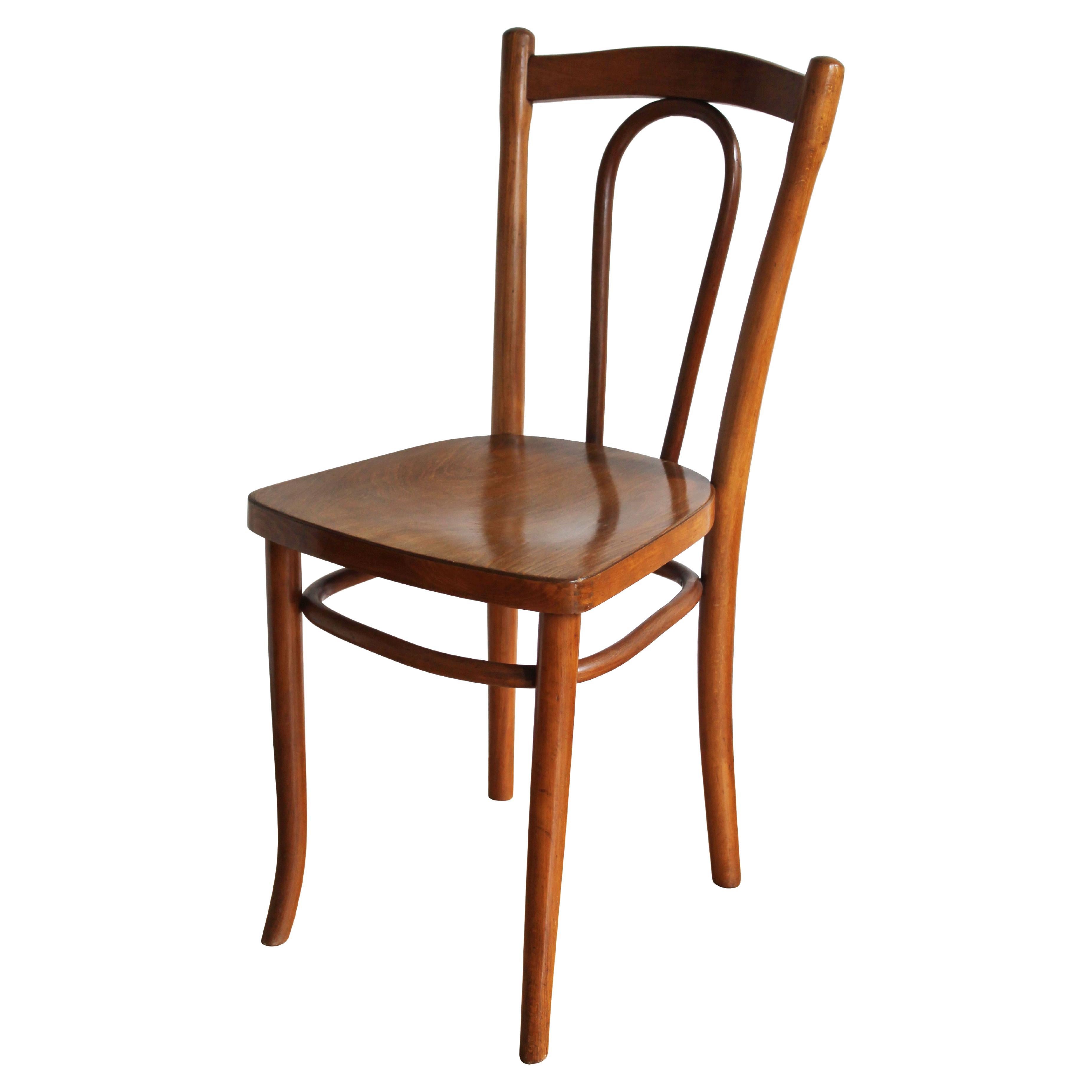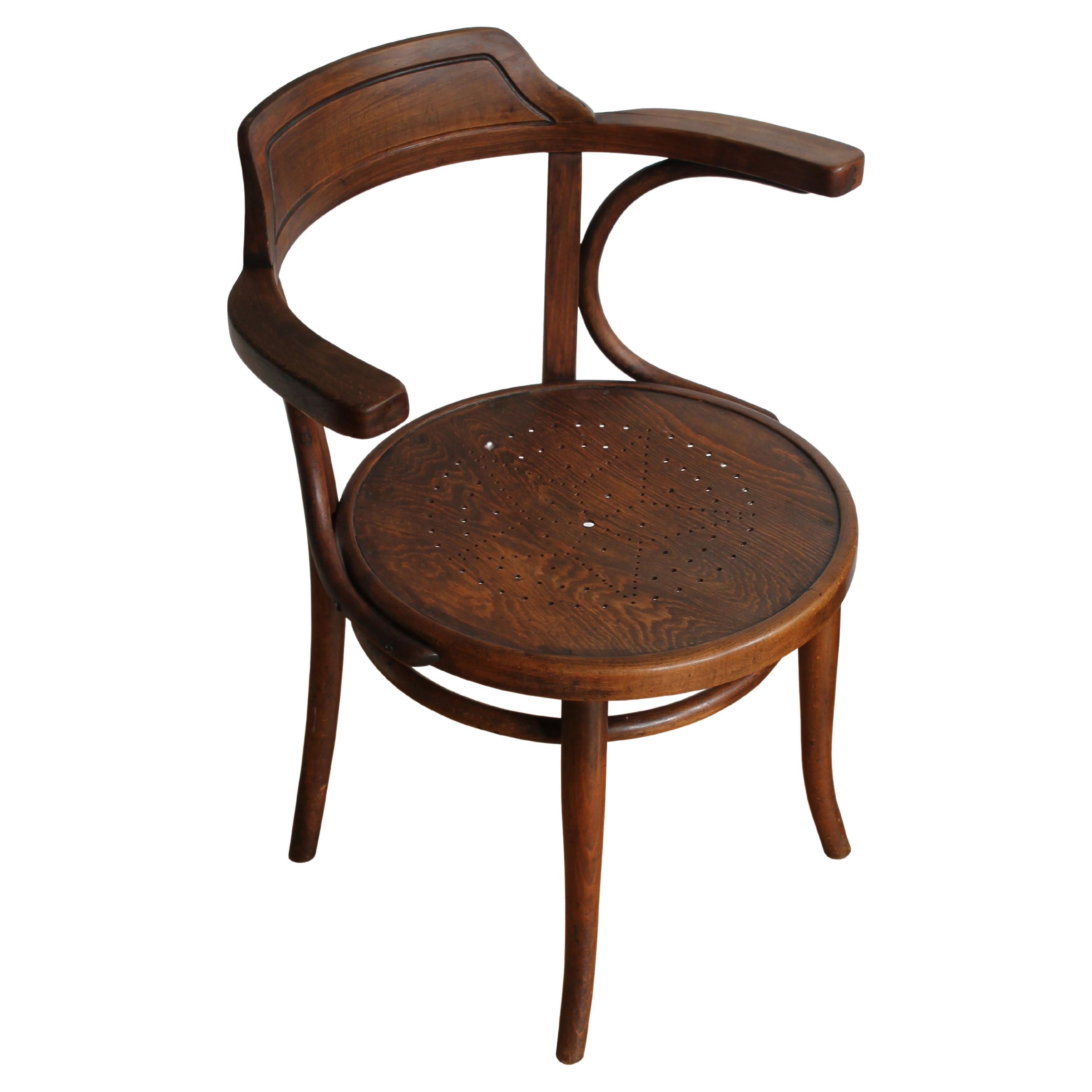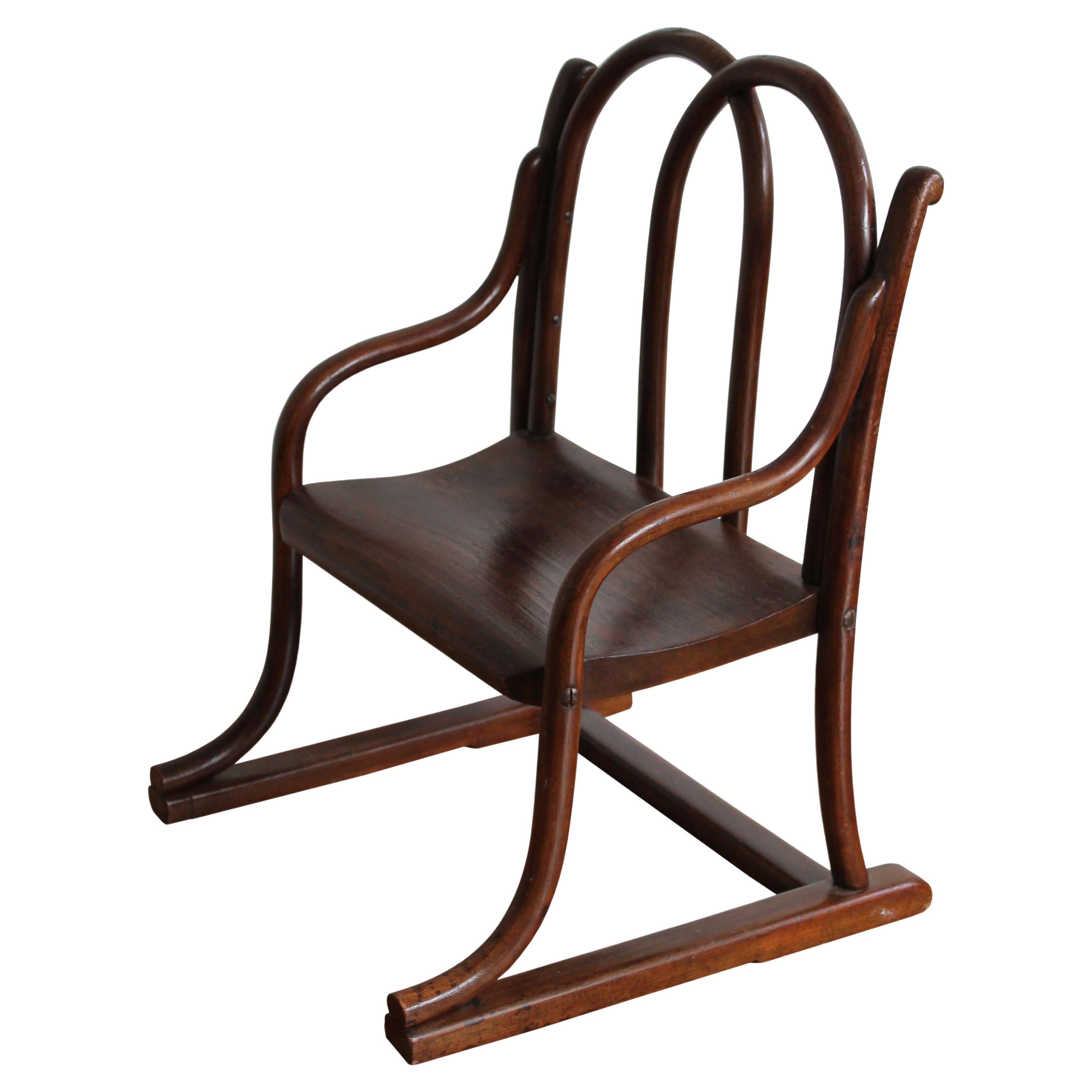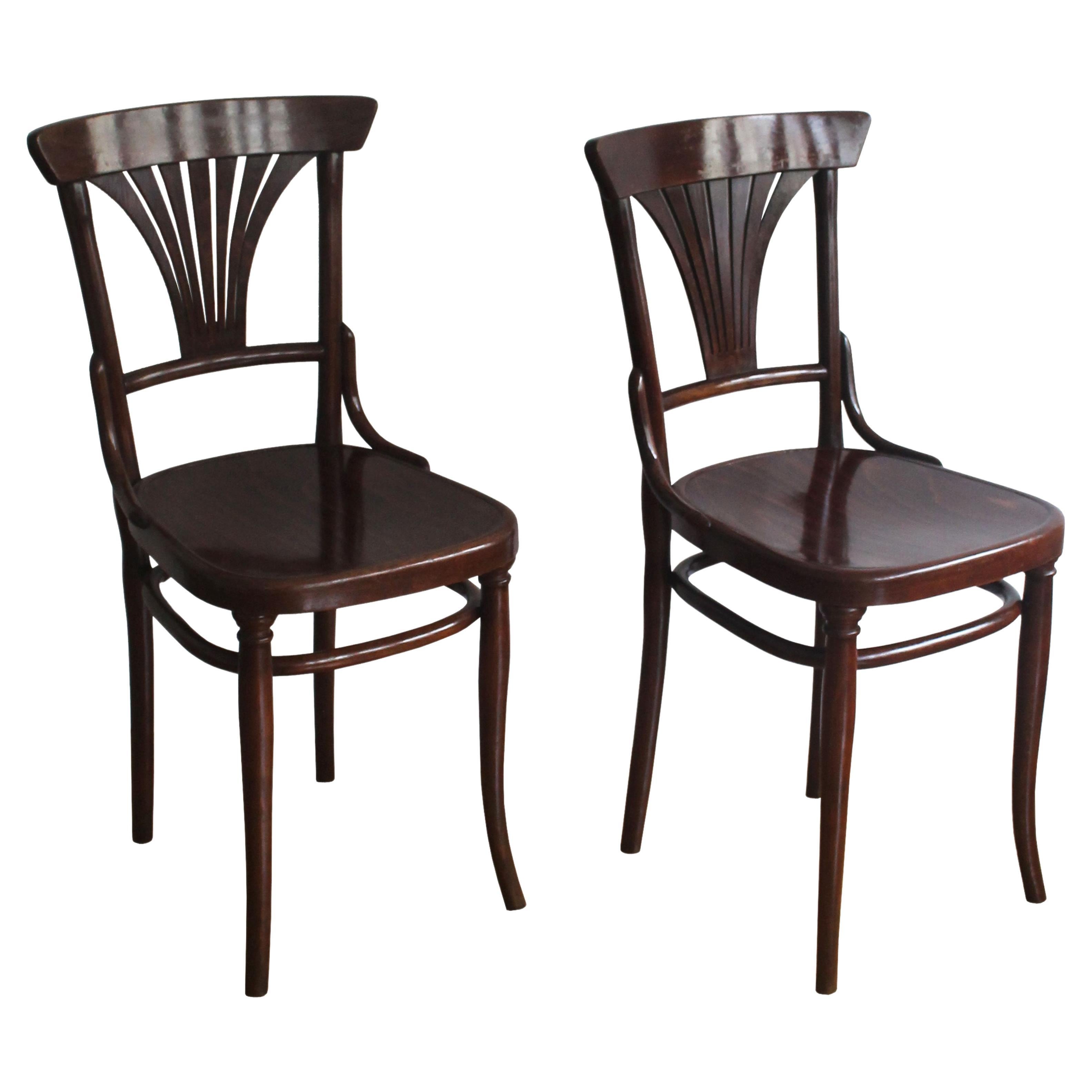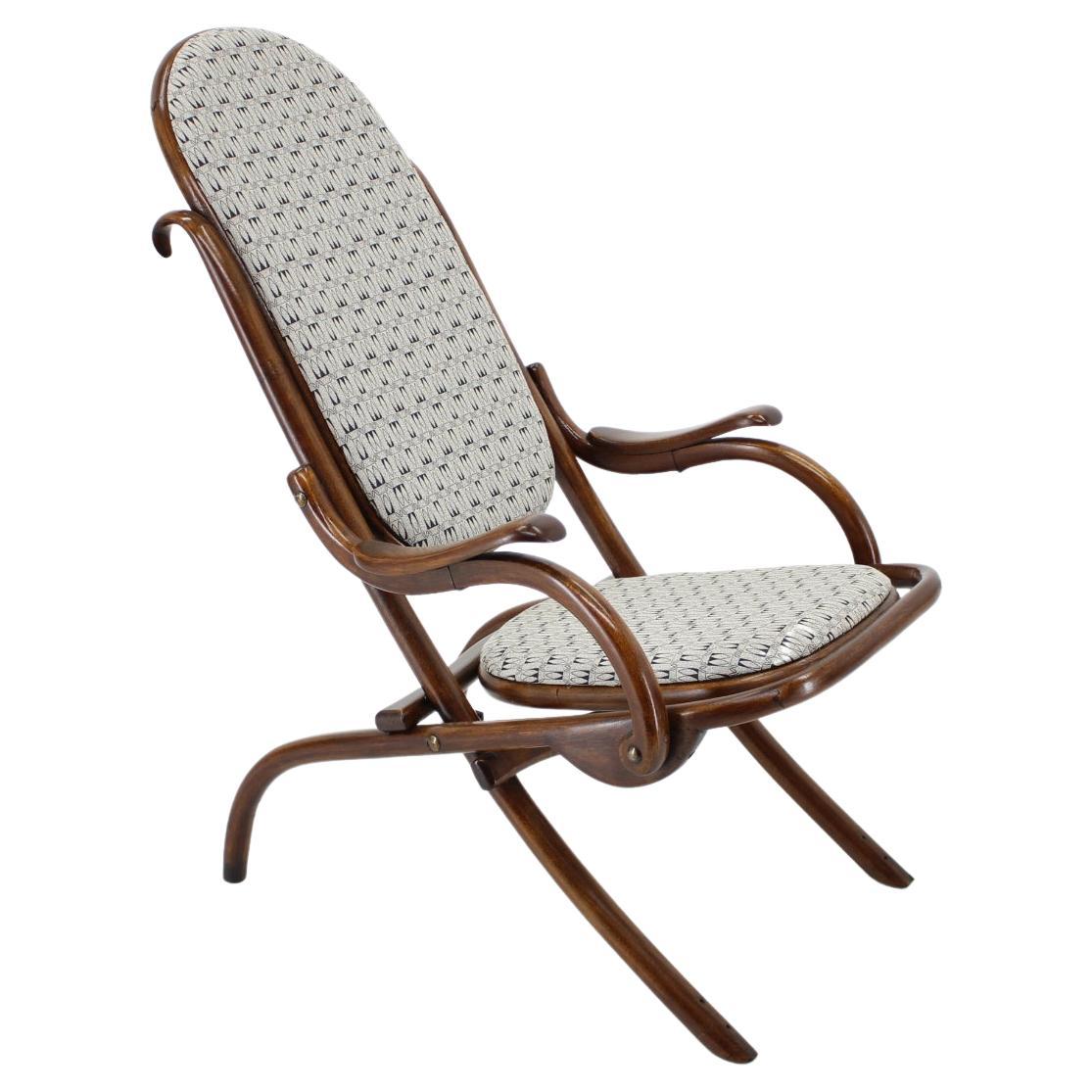Items Similar to 1920's Children Chair Model No.1 by Gebrüder Thonet
Want more images or videos?
Request additional images or videos from the seller
1 of 10
1920's Children Chair Model No.1 by Gebrüder Thonet
About the Item
An authentic bentwood kid's chair made at the beginning of the 20th century by the Thonet Furniture company - and known as Chair Model Number 1. Thonet has a great tradition of producing various furniture for children, which can be seen in the Thonet sales catalogues from the second part of 19th Century. We can find Model No.1 published for the first time in the Thonet Catalogue in 1885, but this particular piece is believed to have been produced in the late 1920’s.
The design of this chair is hugely influenced by the legendary, and perhaps the most successful chair in the whole of Thonet’s history; Model No. 14 .
This chair nicely shows the Thonet renowned technique of wood bending. There is no decoration on any part of the wood but the very expressive organic form of the backrest and its two side supports are the main design feature. Using a round seat was a popular solution at Thonet, it not only works with the curves but also made sitting on the chair comfortable.
The chair is in good vintage condition with some minimal wear and patina on the wooden surface gained over the years. In a recent restoration, the frame has been strengthened and surface hand finished by Shellac and Nitro varnishes in order to achieve an original finish.
- Creator:August Thonet (Designer),Gebrüder Thonet Vienna GmbH (Manufacturer)
- Dimensions:Height: 25.2 in (64 cm)Width: 14.18 in (36 cm)Depth: 15.36 in (39 cm)Seat Height: 12.21 in (31 cm)
- Style:Art Nouveau (In the Style Of)
- Materials and Techniques:
- Place of Origin:
- Period:
- Date of Manufacture:Circa 1920
- Condition:Refinished.
- Seller Location:Brno, CZ
- Reference Number:1stDibs: LU6290237891962
About the Seller
No Reviews Yet
Vetted Seller
These experienced sellers undergo a comprehensive evaluation by our team of in-house experts.
1stDibs seller since 2022
Typical response time: 6 hours
- ShippingRetrieving quote...Ships From: Brno, Czech Republic
- Return PolicyA return for this item may be initiated within 2 days of delivery.
More From This SellerView All
- 1920's Dining Chair Model No. 105 by Gebrüder ThonetBy Michael Thonet, Gebrüder Thonet Vienna GmbHLocated in Brno, CZThis is one of the most commercially successful chairs designed and produced by famous Gebrüder Thonet Company. It was first designed in 1885 (most likely by August Thonet) and can b...Category
Vintage 1910s Czech Art Nouveau Chairs
MaterialsBeech
- 1920's Office chair Model No.3 by Gebrüder ThonetBy Gebrüder Thonet Vienna GmbHLocated in Brno, CZThis office/dinning chair was originally designed at the second half of the 19th century, and can be found in the Thonet sales catalogues as model number 3. This particular piece is ...Category
Vintage 1920s Austrian Art Deco Chairs
MaterialsBeech
- 1910's Children chair by Gebrüder ThonetBy Gebrüder Thonet Vienna GmbHLocated in Brno, CZAn authentic bentwood kids chair made at the beginning of the 20th century. Originally this chair was connected to a small desk as one piece. Thonet was producing this type of kid’s furniture...Category
Vintage 1910s Austrian Art Nouveau Chairs
MaterialsBeech, Bentwood
- Pair of 1910's dining chairs model no.221 by Gebrüder ThonetBy Gebrüder Thonet Vienna GmbH, August ThonetLocated in Brno, CZThese two dining chairs were originally designed by the Gebüder Thonet company in 1898, and could be found in Thonet sales catalogues as model number 221. These particular pieces are...Category
Vintage 1910s Austrian Art Nouveau Dining Room Chairs
MaterialsBeech, Bentwood
- Art Nouveau Three-Legged Chair Model No.81 by Gebrüder ThonetBy Gebrüder Thonet Vienna GmbHLocated in Brno, CZThis rare Thonet Art Nouveau tripod chair was designed in 1904, and in the Thonet catalogue of 1906 (see image below) it is depicted as "Schreibfauteuil Nr. 81", which translates as ...Category
Vintage 1910s Austrian Art Nouveau Armchairs
MaterialsBeech, Bentwood
- 1890's Thonet Dining Chair Model No.10By Gebrüder Thonet Vienna GmbHLocated in Brno, CZA rare bentwood dining chair with beautiful patterned wood and weaved rattan seat. This piece was designed and made by Gebrüder Thonet around 1850. We can find the chair in the old T...Category
Antique 1890s Austrian Belle Époque Chairs
MaterialsRattan, Beech
You May Also Like
- Gebrüder Thonet Folding Chair No.1, circa 1867By Gebrüder Thonet Vienna GmbHLocated in Praha, CZManufactured in Austria by the Gebrüder Thonet company. First view of the chair is in the sales catalog from 1867. Newly reupholstered and finished with shellac.Category
Antique Late 18th Century Austrian Art Nouveau Armchairs
MaterialsUpholstery, Wood, Fabric
- Original Otto Prutscher by Gebrüder Thonet Chair, 1908By Woka Lamps, Gebrüder Thonet Vienna GmbH, Otto PrutscherLocated in Vienna, ATAn extremely rare Thonet chair, designed by Otto Prutscher for a Villa in Jägerndorf - Literatur: Innendekoration 1917 - Measure: Seat height 50cm.Category
Early 20th Century Austrian Jugendstil Chairs
MaterialsBentwood
- Viennese Chair Gebrüder Thonet Nr.14, circa 1860By Gebrüder Thonet Vienna GmbHLocated in Praha, CZA rare early model of famous chair "Nr.14", manufactured in Austria by the Gebrüder Thonet Company. With original luxury finish, imitating rosewood. Marked with early paper label, wh...Category
Antique Late 19th Century Austrian Art Nouveau Chairs
MaterialsBeech, Bentwood
- Thonet Gebruder Vienna Gmbh No.56 Bentwood and Vienna Straw ChairBy Gebrüder Thonet Vienna GmbHLocated in Prato, TuscanyWe kindly suggest you read the whole description, because with it we try to give you detailed technical and historical information to guarantee the authenticity of our objects. For t...Category
Early 20th Century Austrian Biedermeier Chairs
MaterialsBeech
- Gebrüder Thonet Vienna GmbH Hot Upholstered ChairBy Gebrüder Thonet Vienna GmbHLocated in Brooklyn, NYChromed steel structure and shell in beech plywood with or without solid wood arms. Wood or upholstered seat for chairs or armchairs. The upholstered cover is available only in the front part of the seat and back with the exposed wood edge. They can be equipped with a coupling system that allows for alignment. Additional Info: Materials: Beech wood, chromed steel, and upholstery Dimensions: H 31.9 x W 20.7 x D 20.8 inch Seat height: 17.7 inch WIENER GTV DESIGN is a trademark which distinguishes the historical and contemporary collection of Gebrüder Thonet Vienna GmbH...Category
21st Century and Contemporary Austrian Modern Chairs
MaterialsSteel
- Thonet Vienna Wooden Childrens Chair, Austria, 1900sBy Thonet, Gebrüder Thonet Vienna GmbHLocated in Vienna, ATA lovely wooden chair for children by Thonet Vienna, dated around 1900. In good, original condition with nice patina. Labelled and stamped.Category
Antique Early 1900s Austrian Art Nouveau Chairs
MaterialsWood
Recently Viewed
View AllMore Ways To Browse
Art Nouveau Sitting Chairs
Set Of Outdoor Barstools
Painted Ladder Back Chairs
Custom Victorian Style Chair
Leather Banquet
Queen Anne Needlepoint
Chanel Mantel
Mg Leather Chair
Chateau Dax
Goldsmith Windsor Chair
Furniture Velvet Chairs
Surface Bolt
Right And Left Chair
Flexibility Legs
F Moller
Renaissance Renaissance Chairs
Spanish Renaissance Renaissance Chairs
1940 Folding Chair
